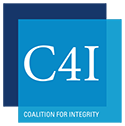State Ethics Work
While the federal government can and should set the tone of ethics and integrity in the United States, the nature of American government is such that a great deal of change will come at the state level. To promote this change, the Coalition for Integrity has focused attention on examining state-level ethics and disclosure laws to determine where improvement can be made. In 2018 we released a report on States With Anticorruption Measures for Public Officials (SWAMP Index). This report graded and compared all fifty states and DC on their laws and regulations surrounding ethics and integrity in state government. The report, rankings, and methodology are all available here.
We built on this report in 2019 with another report: Enforcement of Ethics Rules by State Ethics Agencies: Unpacking the S.W.A.M.P. Index. This report examined how state ethics agencies actually enforce those ethics laws that they are charged with enforcing. It also graded and ranked states based on how transparent they were with the public regarding that enforcement. The report, methodology, and rankings are all available here. We anticipate continuing to update and build upon both these reports.
We have continued our work in 2020 for two reasons. First, we have seen improvement in the ethical framework in many states, as a result of our advocacy and that of state-based organizations. In spite of these improvements, there are still gaps in ethics laws that need to be addressed. It is important to recognize that some states have improved their ethics regime and to update our report to give the most accurate picture of ethics laws across the country. This will give policymakers and constituents the best information available to bring their state ethics regimes to the ideal level.
Additionally, this year we have had greater engagement from ethics agencies, showing greater interest in our report and findings. As part of our methodology, we sent the 51 reports to the relevant agencies in each jurisdiction. Each agency was given the opportunity to comment on the report to provide clarification. This year we received comments back from 34 states as compared to 24 in 2018.
The 2020 report addresses two additional areas that are essential to promoting ethical and transparent government. The past two years demonstrated the importance that anonymous tips can play in fostering a culture of ethical compliance. This year’s report adds a question on how states address this issue. We have also added an additional question on campaign finance transparency to reflect the billions spent in the recent election, much of which was spent on advertising on social media.

